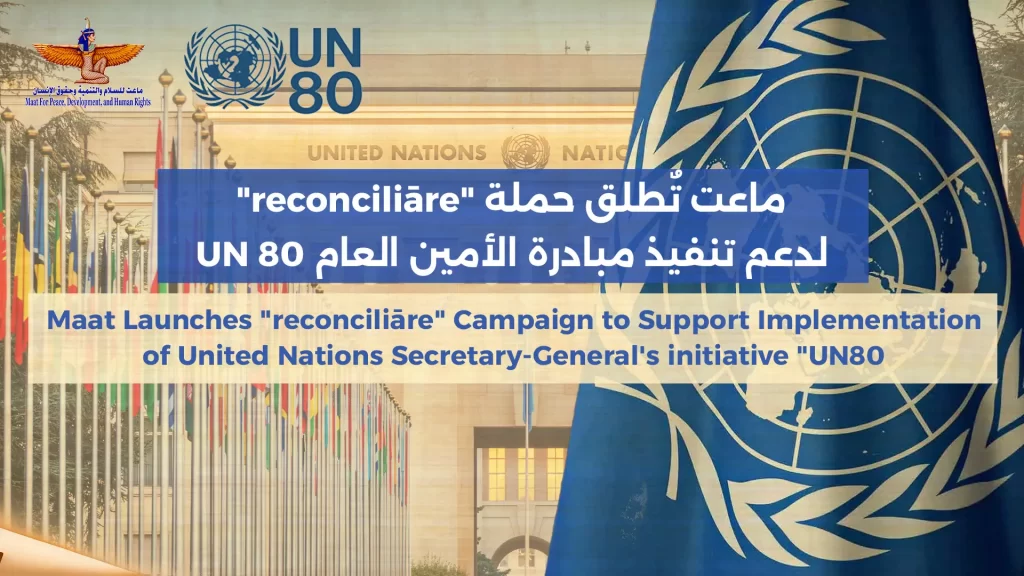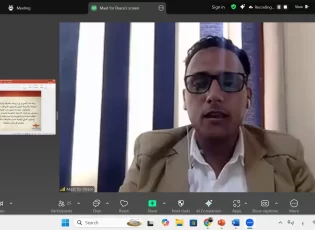Maat for Peace, Development and Human Rights held a seminar entitled "Safer Reservoir in Yemen...Challenges and Solutions", in the presence of a group of experts in the fields of human rights, environment and geology, including Mr. Ayman Okeil, President of Maat for Peace, Development and Human Rights; Dr. Ahmed AL-Malabeh, Professor of Geology and Environmental Change at the Hashemite University in Jordan; Dr. Abdul Qadir Al-Kharraz, Professor of Environmental Impact Assessment at the College of Marine Science and Environment at Hodeidah University in Yemen; Dr. Abdul Ghani Jagman, an oil expert and consultant for natural resource development; and engineer Tareq Hassan, Director of International Partnerships and Finance at the International Youth Council in Yemen. The seminar was moderated by Ali Muhammad, Deputy Director of the International Mechanisms Unit at Maat.
The seminar addressed the role played by the terrorist Houthi militia, under Security Council Res No. 2624 of 2022, in dealing with the Safer Reservoir Crisis, and evaluated the role of the UN in implementing the plan to save the Reservoir. Besides, it focused on the environmental repercussions and risks that may arise due to the collapse of the Reservoir. Indeed, there was a unanimous agreement between experts present in the seminar that the Reservoir-saving plan excluded Yemeni experts from participating in the negotiations and that this plan has various loopholes, as it allows oil to remain on the replacement tanker “Nautica” for another year and a half unloading it from the Safer Reservoir, which does not diminish the threat, and may even have further serious environmental repercussions on Yemen and the countries bordering the Red Sea.
During his speech, the international human rights expert and president of Maat, Ayman Okeil, affirmed that the Houthi militia used the Safer Reservoir crisis as bargaining chip in order to put pressure the international community, by placing obstacles in the way of implementing Security Council resolutions that demanded United Nations technical experts access to the Reservoir and drew attention to the sea mines planted in the vicinity of the Safer Reservoir, which could lead to human losses when implementing the rescue plan. Okeil called the international human rights mechanisms to put pressure on the Houthi militia to allow technical experts remove naval mines.
For his part, Abdul Qadir Al-Kharraz, Professor of Environmental Impact Assessment at the College of Marine Science and Environment at Hodeidah University in Yemen, said that the Houthis used the Safer Reservoir as a bargaining chip in the Stockholm Agreement in 2018, pointing out that the United Nations didn’t try to pressure the Houthis in dealing with the Safer Reservoir for political considerations while ruling out that the UN would be interested in the environmental dimension of the Safer Reservoir crisis.
For his part, Dr. Ahmed AL-Malabeh, Professor of Geology and Environmental Change at Hashemite University, warned that the Reservoir would be badly affected if it remains in sea due to lack of maintenance, which may lead to oil leakage affecting vast areas and extending to all countries bordering the Red Sea. In the same context, Dr. Abdul Ghani Jagman, oil expert and consultant for natural resource development, advised that preventing oil leakage from the Reservoir now is better than any subsequent response plan, explaining that transferring oil to an alternative tanker would not solve the crisis but only delays the consequences, indicating that if the oil leaks from the Reservoir, this leakage will be among the largest five oil disasters in history. Finally, Tareq Hassan, Director of International Partnerships and Finance at the International Youth Council, praised the role of the United Nations in dealing with the issue of the Safer Reservoir and indicated that the plan to save the Reservoir was raised to a group of United Nations entities, including the United Nations Office for Project Services (UNOPS) and the United Nations Development Programme (UNDP). Nevertheless, he criticized the Yemeni side's exclusion from participating in the negotiations related to the Reservoir rescue plan.
In conclusion, all speakers demanded the need to avoid the collapse of the Safer Reservoir as soon as possible, which would spare Yemen and its neighboring countries an environmental catastrophe that would lead to severe damage to local and coastal communities and to world trade moving through the Red Sea basin. The experts in this event called for the need to involve Yemeni experts in the Safer Reservoir rescue plan in addition to upping pressing on the Houthi militia to implement the plan to save the Reservoir and not put any obstacles to saving the Reservoir.
shortlink: https://maatpeace.org/en/?p=38707











